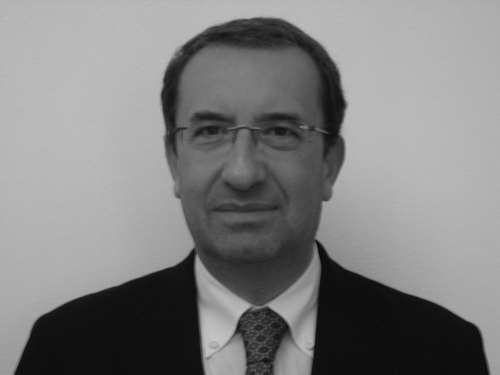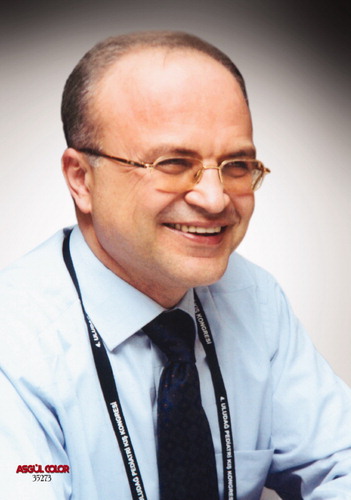We are very proud to present to you the Proceedings of the 6th International Workshop on Neonatology – Personalized Neonatal Medicine to be held in Cagliari (Italy), 28–30 October 2010, which follows the successful previous editions, on the behalf of many European and Italian Scientific Societies and the President of the Italian Republic. The Proceedings of the last edition were published in the Journal of Maternal Foetal and Neonatal Medicine (previously in the Journal of Chemotherapy). We are grateful to the Editors of the Journal of Maternal Foetal and Neonatal Medicine for hosting us again in this edition.
This year the meeting is organized by the Union of Mediterranean Neonatal Societies (UMENS) and the Union of European Neonatal and Perinatal Societies (UENPS).
The program covers relevant topics such as pharmacology (cerebral, cardiovascular, respiratory, anti-infective), laboratory medicine, medical humanities, perinatal programming, and perinatology (late preterm infants, twins, newborns born with fertilization in vitro). Seven lectures are devoted to neonatal nephrology, from renal maturation to acute kidney injury, exploring new markers such as Tβ10 immunoreactivity, urine neuthrophil gelatinase-associated lipocalin (uNGAL), from hypodispasia management to renal long-term effects of neonatal drugs. Special attention will be focused on neonatal urinary tract infections, which is also the topic of a satellite meeting.
The aim is to discuss current issues and to bring ourselves up to date on the latest in research and clinical neonatology, with special reference to health assistance to Mediterranean newborns. In this context special consideration must be given to one of the three satellite meeting, which is entitled History of birth in the Mediterranean area. We cannot imagine our future scenarios without knowing our heritage [Citation1–4].
The title of the Workshop is Personalized Neonatal Medicine and some of the world's most important researchers will deliver lectures concerning this topic.
A recent editorial in the New England Journal of Medicine [Citation5] reports: ‘we are now building a … highway system for personalized medicine … we look forward to doctors' and patients' navigating these roads to better outcomes and better health’.
The dream of the physician is ‘the right therapy for the right patient’ without side effects [Citation6–7]. For example, in our units we daily perform therapeutic drug management of aminoglycosides to reach our therapeutic goal without toxicity [Citation8–9]. This may be possible also for new drugs. Last year in this Workshop, we focused our attention on Patent Ductus Arteriosus [Citation10]. Interesting results were proposed to individualize in a tailored way the dosage of ibuprofen in the first week of life [Citation11], with therapeutic drug monitoring and the evaluation of the efficacy/safety relationship with urinary biomarkers, such as prostaglandins E2 [Citation12], and metabolomics [Citation17].
There is increasing interest in NanoPediatrics [Citation18] and the so-called ‘-omic’ sciences, e.g. genomics, transcriptomics, proteomics, metabolomics, where these ‘-omic’ terms have been formulated to define approaches capable of identifying groups of biomarkers characteristic of a particular disease. In the past, we have had success in treating populations (epidemiology). Now it is time to treat the individual. Metabolomics appears to be a new, very useful tool in Neonatology [Citation13–16], especially in the fields of pharmaco-metabolomics and nutri-metabolomics, and it can be considered the ‘new clinical chemistry’ for personalized neonatal medicine, which is predictive and preventive at the same time [Citation13–20].
Other dreams of contemporary neonatologists are ‘the right ventilation for the right patient’ and ‘the right nutrition for the right patient’. This is particularly true for preterm infants, and Very Low Birth Weight (VLBW) and Extremely Low Birth Weight (ELBW). Moreover, these topics are of outstanding relevance considering the importance of the early prenatal origin of adult disease or perinatal programming or developmental programming.
The latter can be defined as the response by a developing organism to a specific challenge during a critical time window that alters the trajectory of development qualitatively and/or quantitatively with resulting persistent effects on phenotype [Citation20–21].
The foetus is ‘normally programmed’ in physiologic conditions and during hypo- or hyper-nutrition. An unfavorable ‘lifestyle’ is not expected. Thus, for example, the passage from unfavorable environment to a ‘too favorable’ environment may predispose to pathologies in the adult age. Consequently, a mismatch between pre- and postnatal nutrient environments may induce an altered cardiovascular, renal, pulmonary, and metabolic function in the adult age. Approaches such as individualized fortification of human milk may be very useful in this setting with long-term beneficial effects and should be considered in Neonatal Intensive Care Units and (NICUs) [Citation22–24].
Personalized care for the newborn is required also in a microenvironment. Further research and technological developments are needed to optimize the design of NICU incubators to preserve the acoustic environment of the womb [Citation25]. Fascinating pilot studies have been performed with simulation of prenatal maternal sounds in NICU incubators [Citation26].
Finally, we must open our minds to medical humanities in a tailored way: [Citation27–28] special matters of discussion are bioethics, (for example ethical decisions in NICUs or the new borders of therapeutic obstinacy), communication with parents, empowerment and shared decision-making in neonatology, family-centered care, new families, screening of post-partum depression: high technology is nothing without a high touch.
In this context the role of nurses is of outstanding importance and a special satellite meeting, the 5th of this series, covers hot topics in assistance, care and correct approach to multicultural differences.
The Proceedings could be helpful for neonatologists, obstetricians, perinatologists, pediatricians, nephrologists, ultrasonographers, fellows, students, midwives, nurses, and all those who are interested in the newborn infant.
We hope and believe that this Workshop will represent a small step forward in improving health assistance of our newborns and giving them roots and wings [Citation28].
Prof. Vassilios Fanos
Chief Neonatal Intensive Care Unit,
Puericulture Institute and Neonatal Section,
Azienda Mista and University of Cagliari, Italy
Treasurer Italian Society of Neonatology,
Italian Delegate to the Parliament of UENPS
(Union European Neonatal Perinatal Societies),
President 6th International Workshop on Neonatology
Prof. Murat Yurdakök
Consultant on Neonatology,
Hacettepe University Faculty of Medicine,
Ankara, Turkey
President of the Turkish Neonatal Society,
Past-President of the Turkish National Pediatric Society,
President of UMENS (Union of Mediterranean Neonatal Societies),
President of UCENS (Union of Central Eurasian Neonatal Societies),
Member of the Executive Board of UENPS
(Union of European Neonatal and Perinatal Societies),
President of the 6th International Workshop on Neonatology
References
- Corridori M, Fanos V, Farnetani I. Birth through the ages. Mondadori 2006.
- Corridori M, Fanos V, Yurdakök M. The newborn between history and actuality [in Italian]. Biomedia Books, Milan, 2007.
- Fanos V, Yurdakök M. Children of the Mother Goddess: history of birth in the Mediterranean area. Hygeia Press, in press.
- Yurdakök M. Neonatal Medicine in Ancient Anatolia 2010, in press.
- Hamburg MA, Collins FS. The path to personalized medicine. N Engl J Med 2010;363:301–304.
- Kroemer HK, Meyer zu Schwabedissen HE. A piece in the puzzle of personalized medicine. Clin Pharmacol Ther 2010;87:19–20.
- Baraldi E, Carraro S, Giordano G, Reniero F, Perilongo G, Zacchello F. Metabolomics: moving towards personalized medicine I. J Ped 2009;35:30.
- Yaffe SJ, Aranda JV. Neonatal and pediatric pharmacology: therapeutic principles in practice. Lippincott William & Wilkins, Philadelphia, 2005.
- Testa M, Fanos V, Martinelli V, Stronati M, Mussap M, Del Zompo M. Therapeutic drug monitoring of gentamicin in neonatal intensive care unit: experience in 68 newborns. J Chemother 2007;19 (Suppl 2):39–41.
- Fanos V, Guimarães H (Guest Editors). Present and future of European Neonatology: Proceedings of the 5th International Workshop on Neonatology Cagliari, October 29–31, 2009. J Matern Fetal Neonatal Med 2009;22 (S3):1–110.
- Hirt D, Van Overmeire B, Treluyer JM, Langhendries JP, Marguglio A, Eisinger MJ, Schepens P, Urien S. An optimized ibuprofen dosing scheme for preterm neonates with patent ductus arteriosus, based on a population pharmacokinetic and pharmacodynamic study. Br J Clin Pharmacol 2008;65:629–636.
- Antonucci R, Cuzzolin L, Arceri A, Dessì A, Fanos V. Changes in urinary PGE2 after ibuprofen treatment in preterm infants with patent ductus arteriosus. Eur J Clin Pharmacol 2009;65:223–230.
- Antonucci R, Atzori L, Barberini L, Fanos VR. Metabolomics: the “new clinical chemistry” for personalized neonatal medicine. Min Ped 2010;3:145–148.
- Atzori L, Antonucci R, Barberini L, Griffin JL, Fanos V. Metabolomics: a new tool for the neonatologist. J Matern Fetal Neonatal Med 2009;22(S3):50–53.
- Atzori L, Antonucci R, Barberini L, Locci E, Cesare Marincola F, Scano P, Cortesi P, Agostiniani R, Weljie A, Lai A, et al 1H NMR-based metabolic profiling of urine from children with nephrouropathies. Front Biosci (Elite Ed) 2010;2:725–732.
- Atzori L, Antonucci R, Barberini L, Locci E, Cesare Marincola F, Scano P, Cortesi P, Agostiniani R, Defraia R, Weljie A, et al 1H NMR-based metabolomic analysis of urine from preterm and term neonates. Front Biosci (Landmark Ed), in press.
- Nordström A, Lewensohn R. Metabolomics: Moving to the Clinic. J Neuroimmune Pharmacol 2010;5:4–17.
- McCabe ERB. NanoPediatrics: enabling personalized medicine for children. Proceedings Hot Topics in Neonatology, Washington, December 6–8, 2009.
- Solberg R, Enot D, Deigner H-P, Koal T, Scholl-Bürgi S, Saugstad OD, Keller M. Metabolomic Analyses of Plasma Reveals New Insights into Asphyxia and Resuscitation in Pigs. PLoS ONE 2010;5: e9606. doi:10.1371/journal.pone. 0009606.
- Patrinos GP, Innocenti F. Pharmacogenomics: paving the path to personalized medicine. Pharmacogenomics 2010;11:141–146.
- Newnham JP, Ross MG. Early life origins of human health and disease. Karger, Basel, 2009.
- Puddu M, Fanos V, Podda F, Zaffanello M. The kidney from prenatal to adult life: perinatal programming and reduction of number of nephrons during development. Am J Nephrol 2009;30:162–170.
- Fanos V, Puddu M, Reali A, Atzei A, Zaffanello M. Perinatal nutrient restriction reduces nephron endowment increasing renal morbidity in adulthood: a review. Early Hum Dev 2010;86:37–42.
- Reali A, Greco F, Fanaro S, Atzei A, Puddu M, Moi M, Fanos V. Fortification of maternal milk for very low birth weight (VLBW) pre-term neonates. Early Hum Dev 2010;86:33–36.
- Antonucci R, Porcella A, Fanos V. The infant incubator in the neonatal intensive care unit: unresolved issues and future developments. J Perinat Med 2009;37:587–598.
- Elisha W, Lahav A. The adverse affects of noise on preterm infants in the neonatal intensive care unit: a review of the current literature. Arch Dis Child Fetal Neonatal Ed, in press.
- Erdeve O, Arsan S, Canpolat FE, Ertem IO, Karagol BS, Atasay B, Yurdakok M, Tekinalp G, Turmen T. Does individual room implemented family-centered care contribute to mother-infant interaction in preterm deliveries necessitating neonatal intensive care unit hospitalization? Am J Perinatol 2009;26:159–164.
- Fanos V, Puddu M. The future of Pediatrics [in Italian]. Hygeia Press, Quartu S. Elena, 2009.

